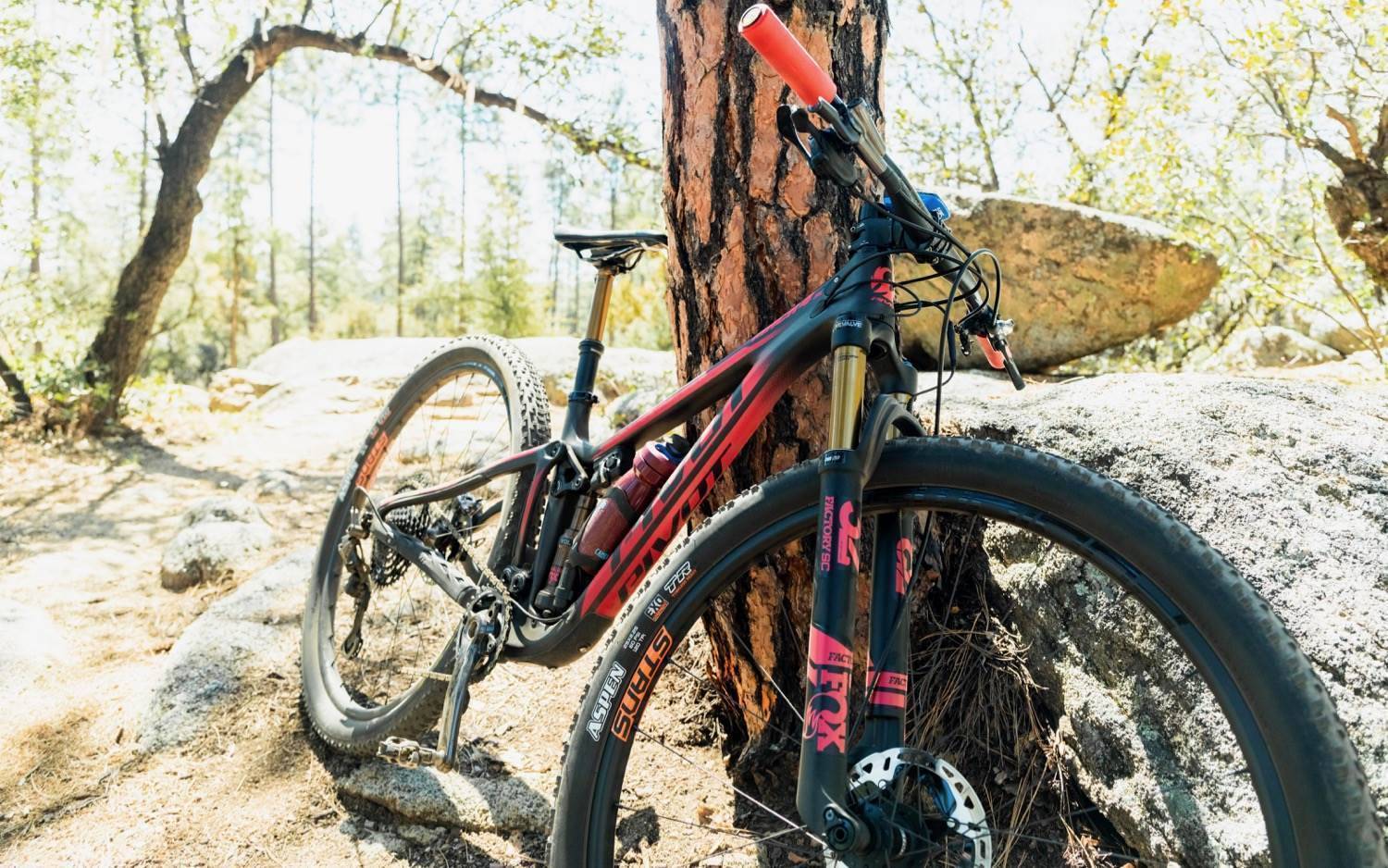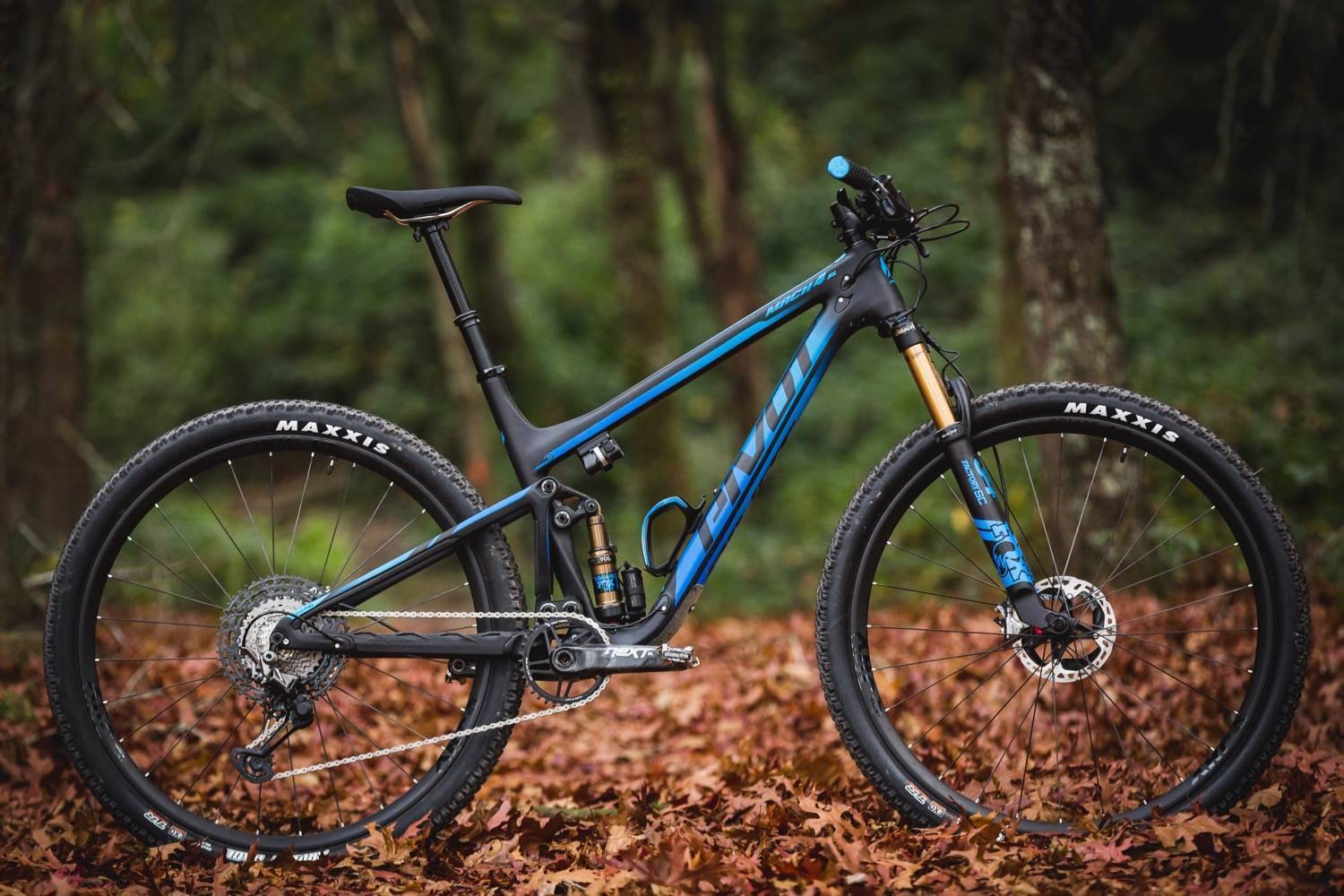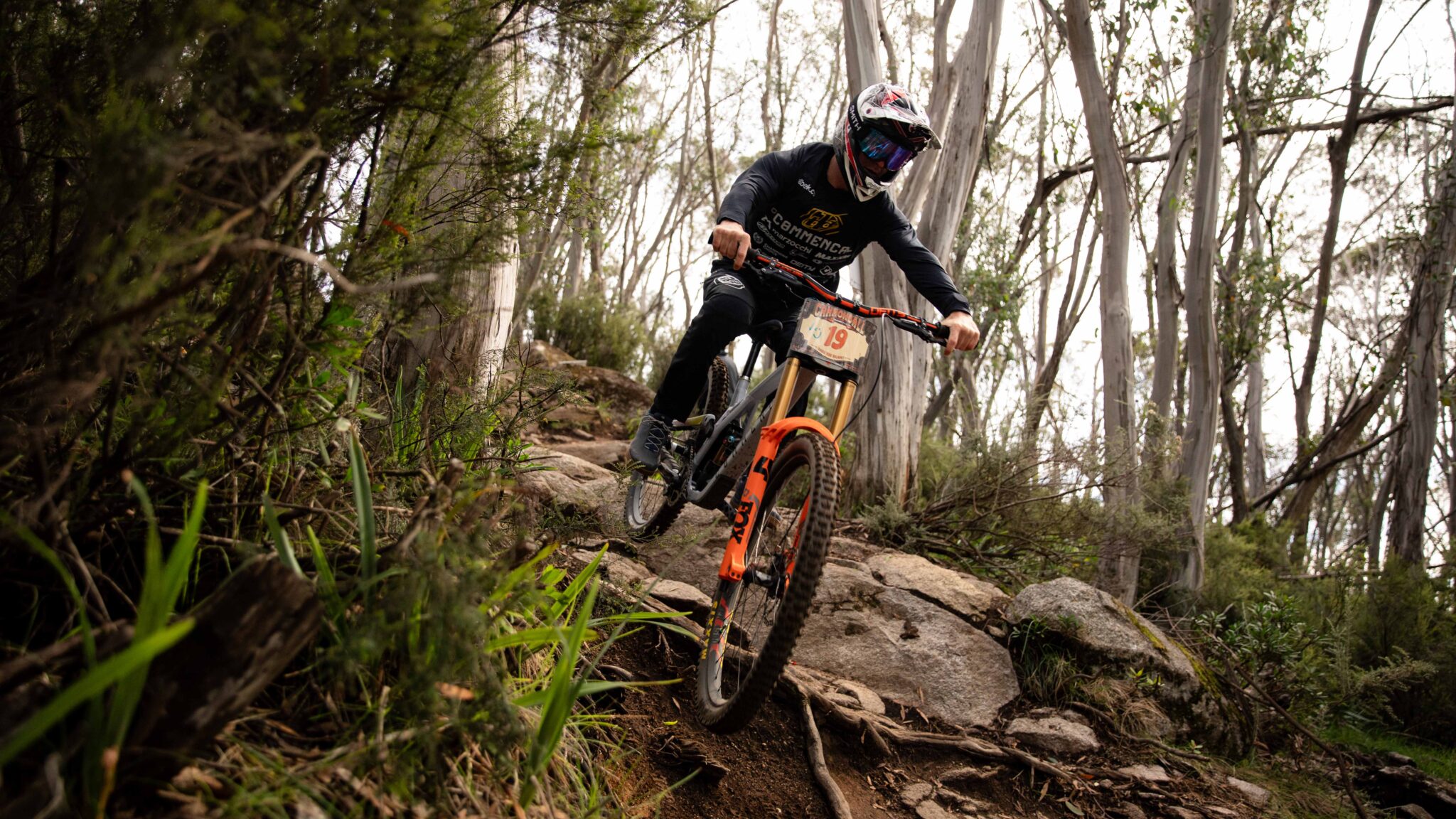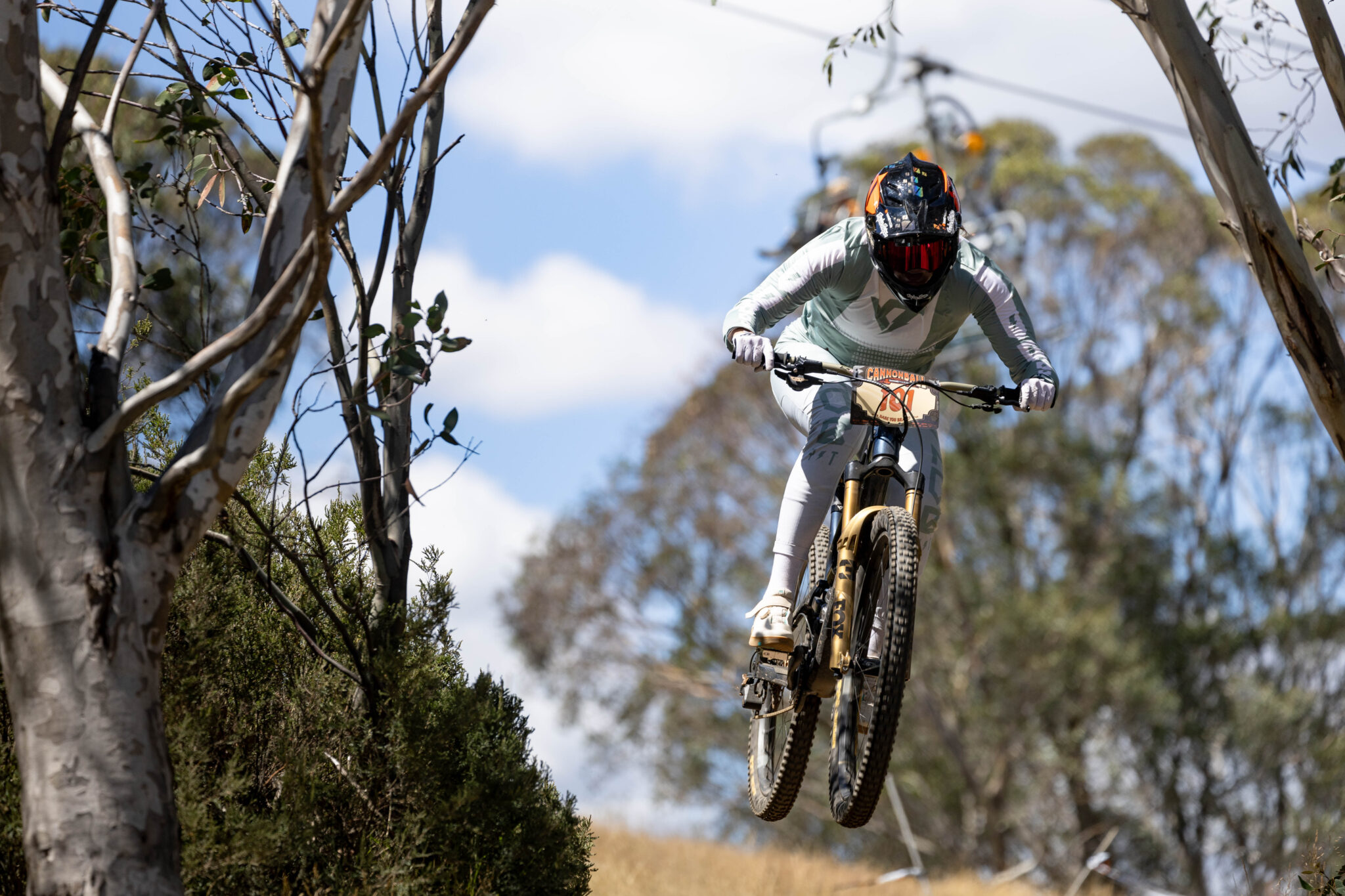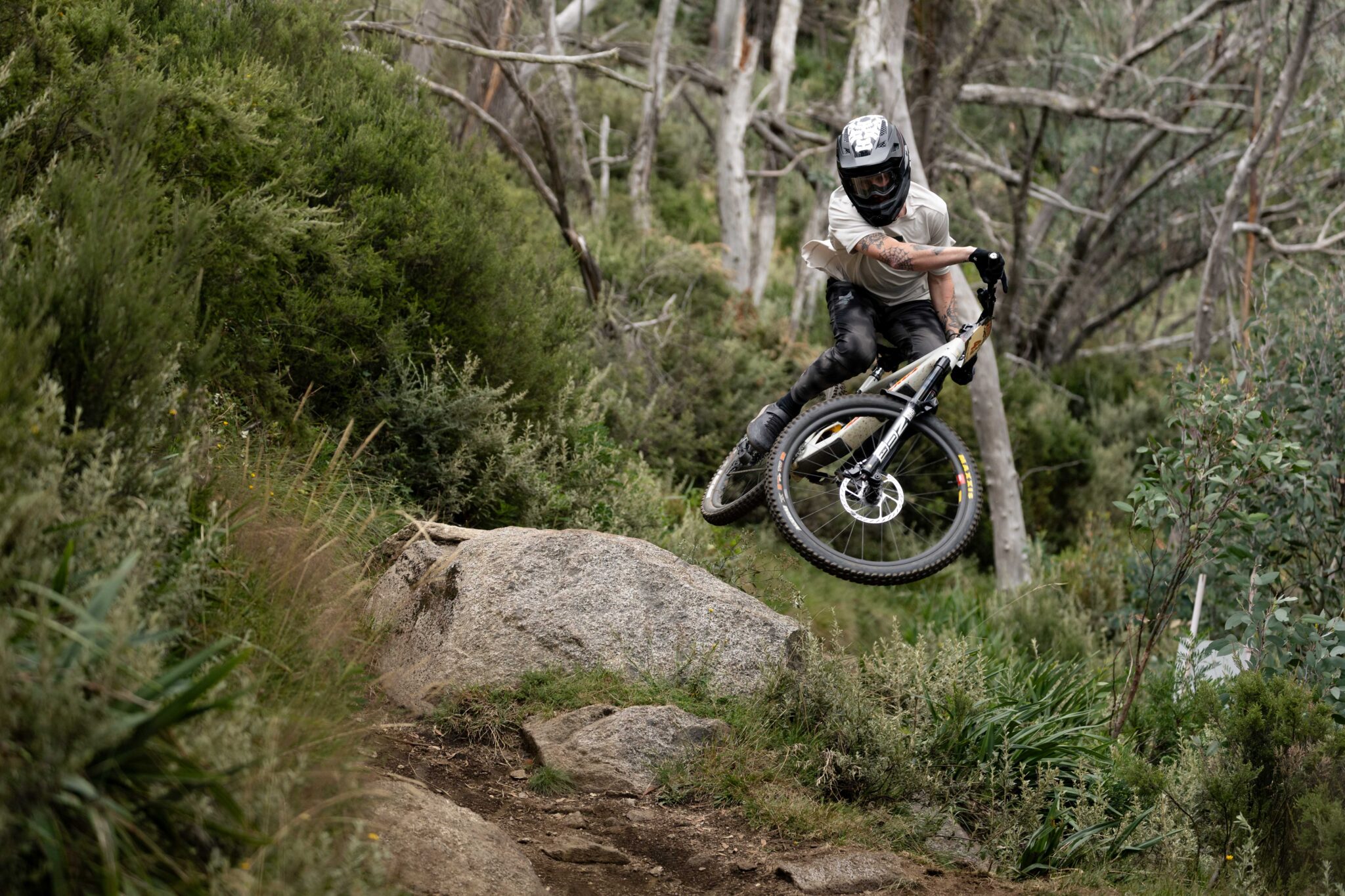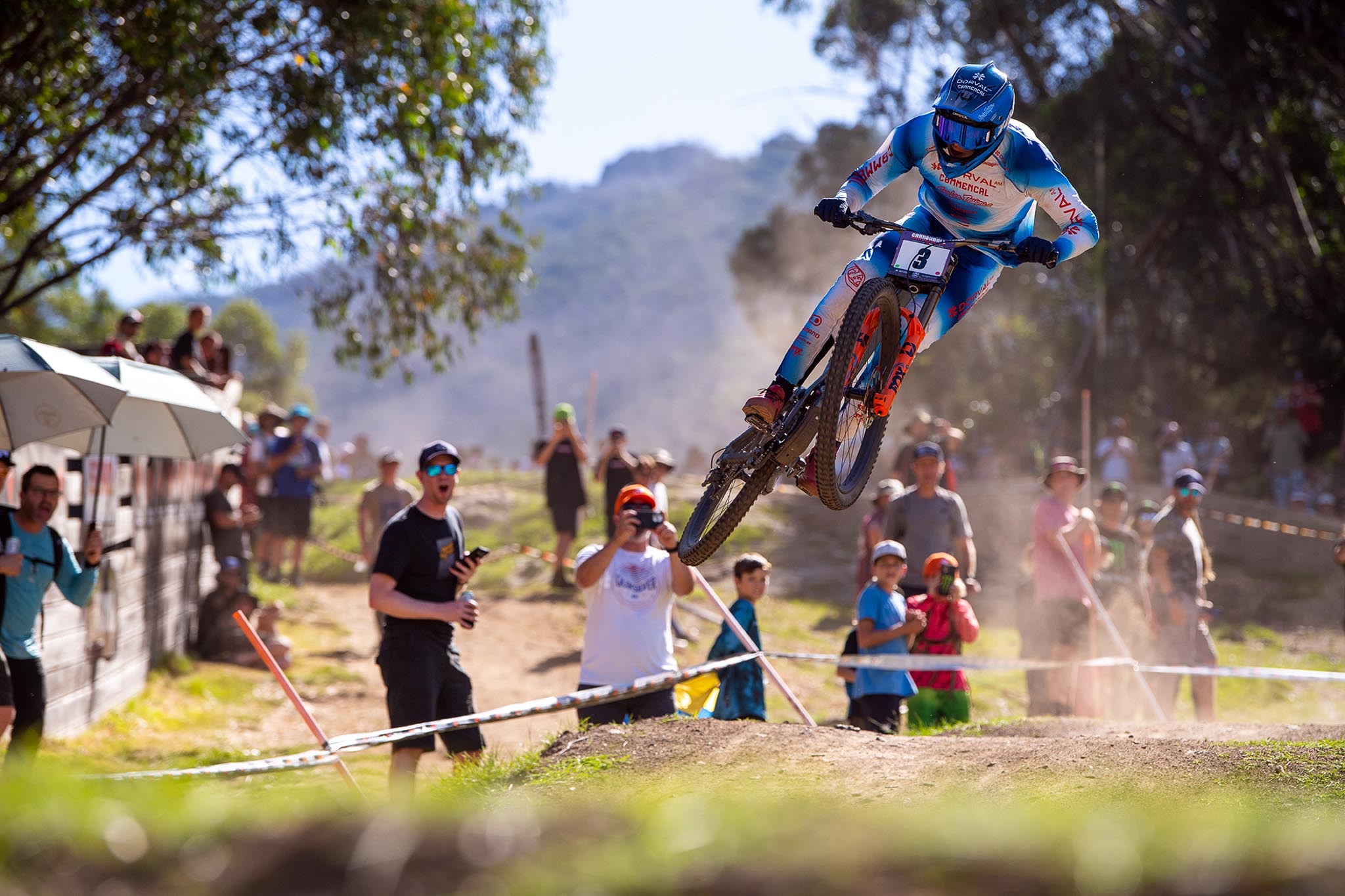Pivot hit top speed with the Mach 4 SL
The all-new Pivot Mach 4 SL puts the super light into Pivot's XC super bike. We trail tested it to see if it cuts the mustard!
Up until recently, Arizona based Pivot Cycles has been a bit of an ugly duckling. Its bikes have always been great performers, but in the looks department, the frames erred more on the side of an English Bull Terrier than a Labrador Retriever.
For the brand new Mach 4 SL, Pivot has not only vastly improved the aesthetics but also created an XC bike that’s likely to tick the boxes for racers and folks looking for a spirited short travel bike alike.
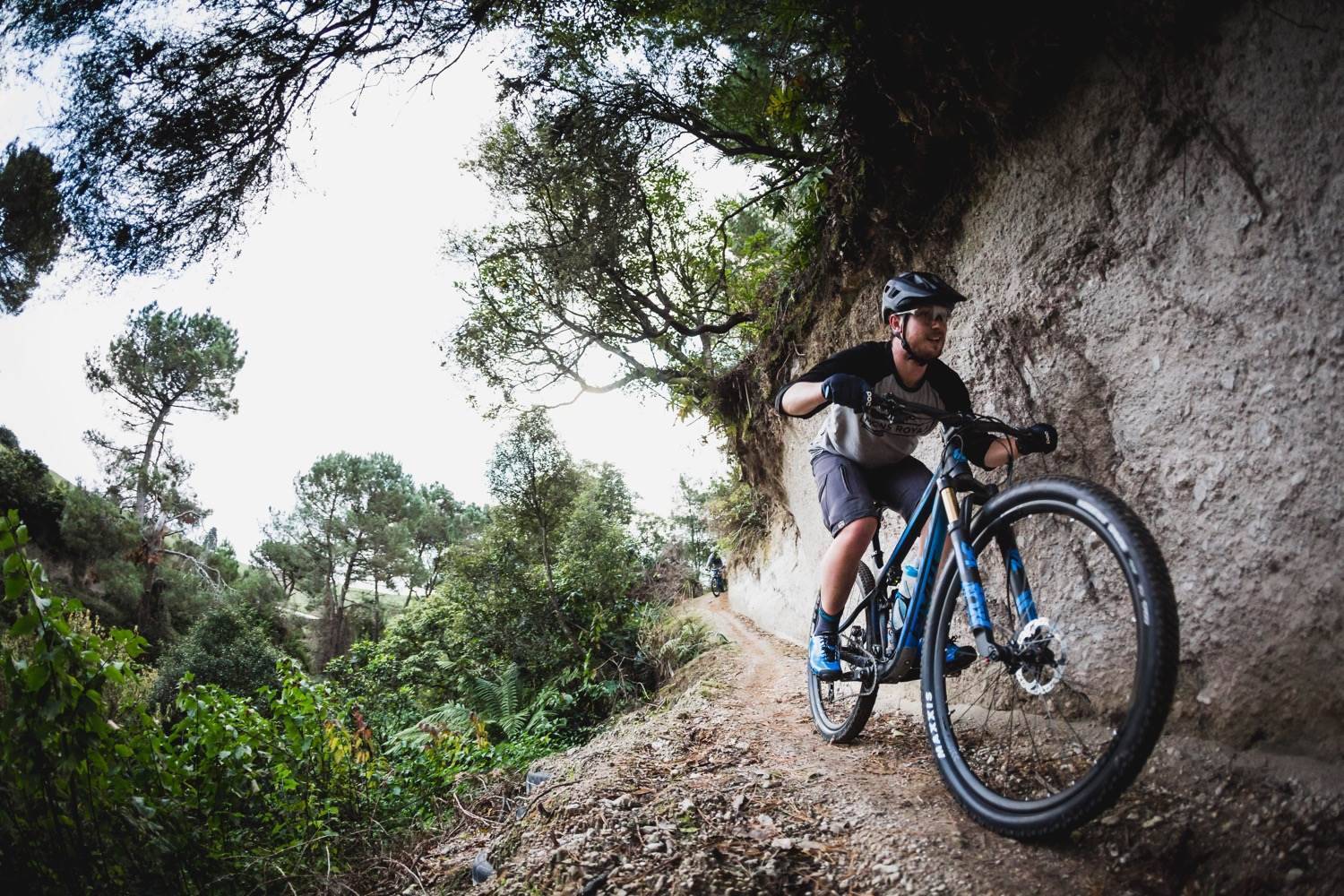
Available with either 100mm or 120mm forks, the Mach 4 SL comes in four build kits; World Cup, specced with a 100mm Fox Factory 32 Stepcast fork, fixed carbon seat post, and carbon wheels, and the Team, Pro and Race builds which see a 120mm Fox 34 Stepcast and a Fox Transfer or KS dropper depending on the size.
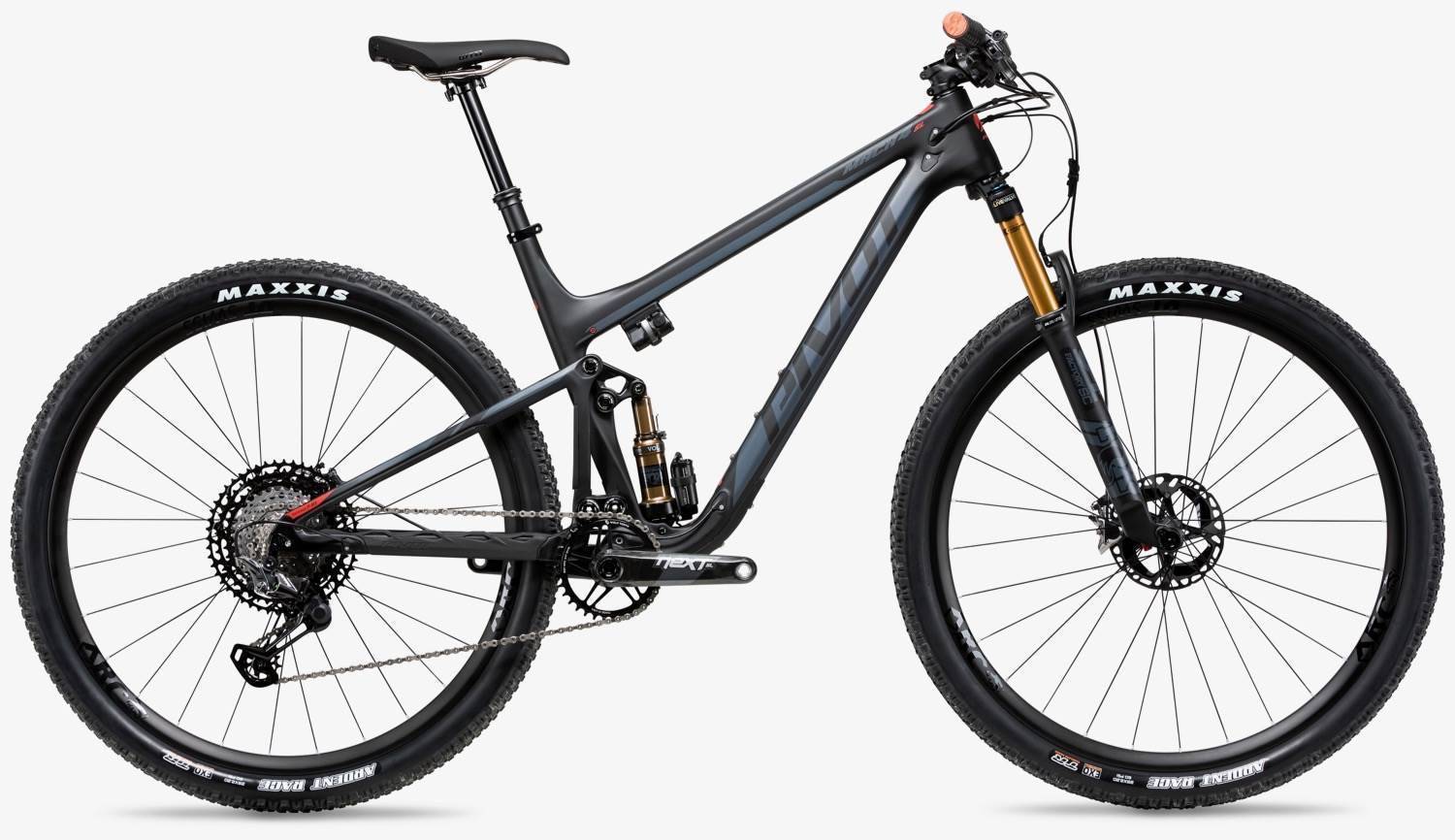
Replacing the Mach 4 Carbon and the Mach 429SL, the Mach 4 SL will now serve as the brand's only full suspension XC and Marathon race bike. According to International Sales Manager John Pentecost, the new frame shaves 300g off the Mach 429 SL by adapting tube shapes and diameter through each size to retain stiffness, and using carbon fibre pivot bearing pockets brought across from the Phoenix DH bike.
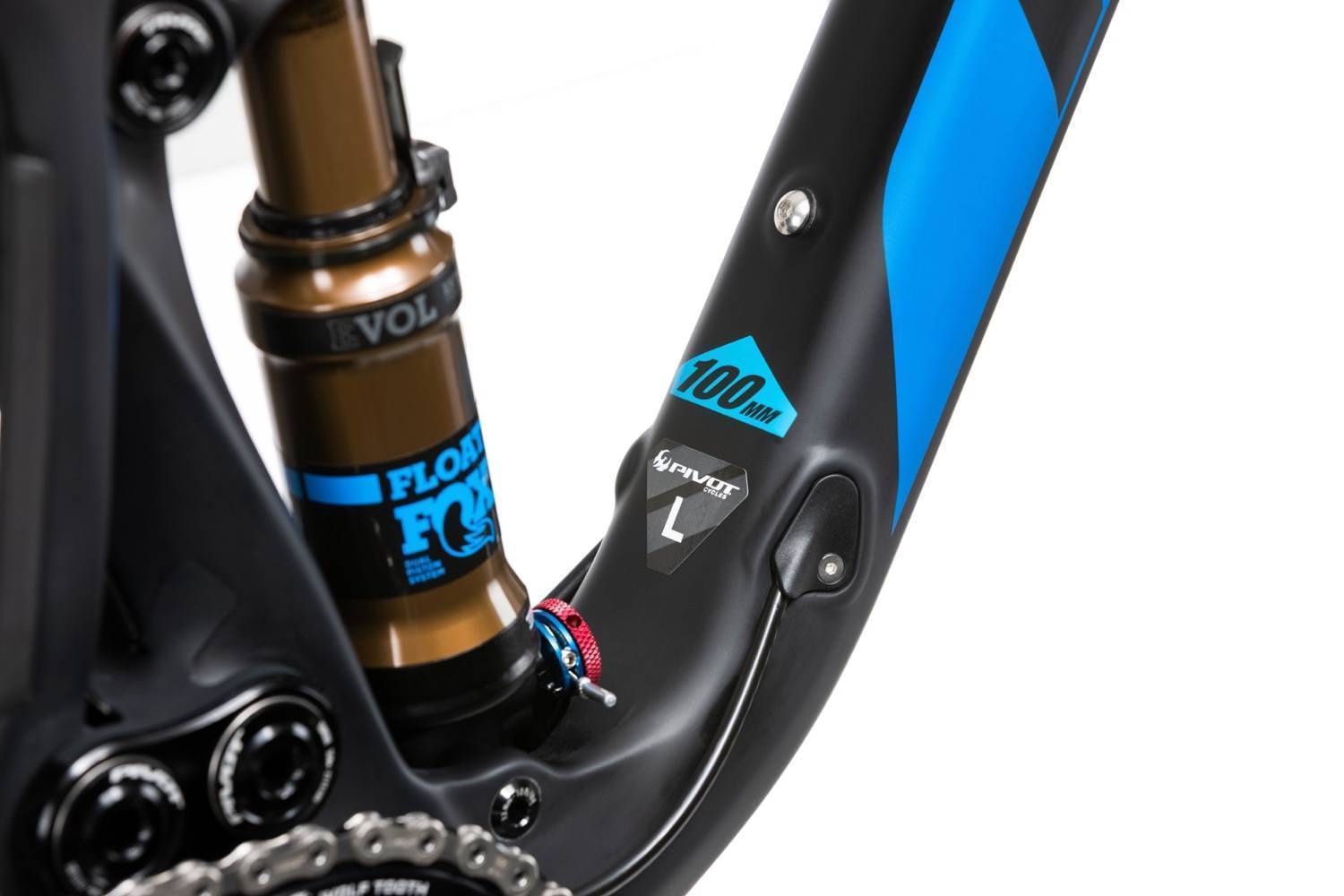
Pivot say the frame weights start a 1930g including the shock—a size medium Pro XT/XTR build with Fox Live Valve tipped our scales at 11.8kg, while a size large Team XTR sans Live Valve weighed 11.4kg.
The Mach 4 SL uses a dw-link suspension design for its 100mm of rear squish and changes to a vertical shock layout, eliminating the need for shock mount taps on the top tube, saving a few grams here too. A vertical shock orientation also makes for a lower overall standover height, better water bottle clearances (every size can take a full-size bottle inside the front triangle, and the XL has room for two), and a more compact frame.

The swingarm is connected to the front triangle with two cold forged aluminium links, dual upright swingarm supports and Pivot tells us the rear end will accept a 2.5in Maxxis Minion DHR too.

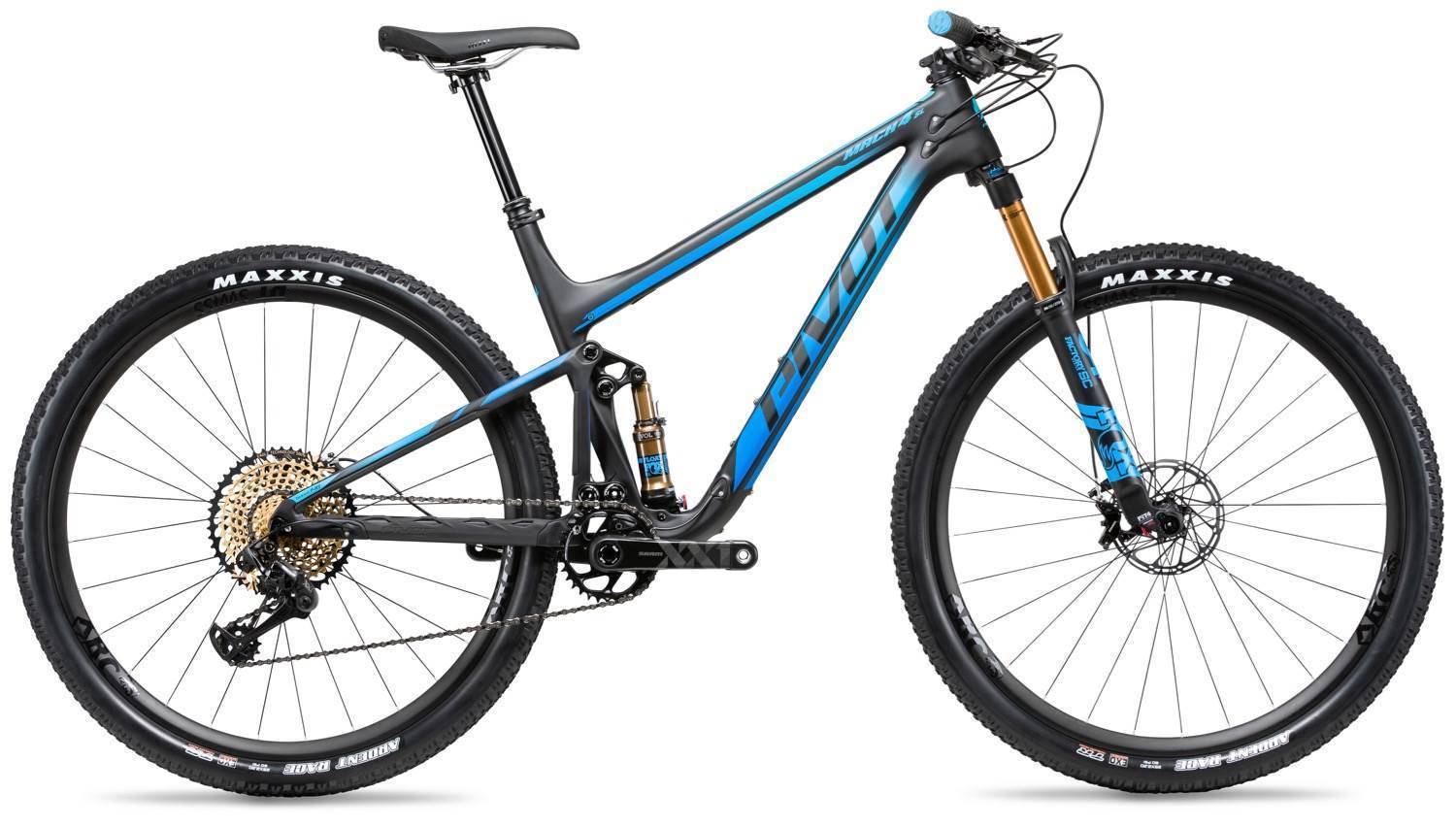
In the 120mm version, the Mach 4SL has a wheelbase of 1146mm with 431mm chainstays in a size Medium, the Mach 4 SL is a touch longer than other XC bikes available in a 120mm fork like the Niner RKT (1111mm) but a hair shorter than the Yeti SB 100 (1151.4mm) and new Norco Revolver 120 (1150mm). The reach on the new frame measures 427mm in a size medium and sees a headtube angle of 67.5 and an effective seat tube angle of 73.4—the 100mm World Cup build sees a 440mm reach and a slightly steeper 68.5 head tube and 74.5 effective seat tube angle in the same size. These figures put the new Mach 4 SL quite close to the new Revolver in both the 100mm and 120mm configurations on the geometry chart.
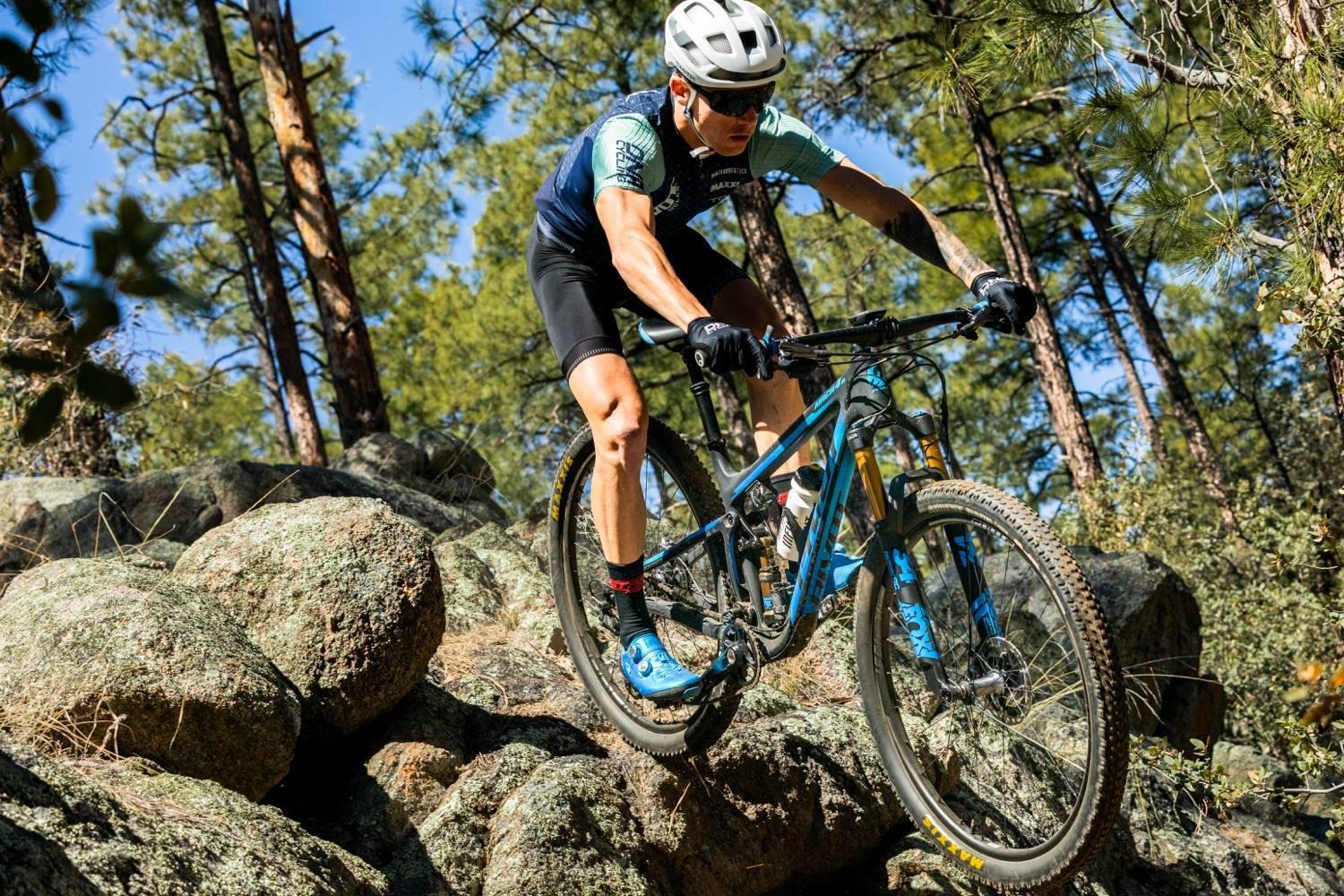
While the tube in tube internal cable routing seems to be catching on around the industry, Pentecost tells us the brand opted to stick with its Cable Port system because it simplifies the manufacturing process, doesn't add extra weight to the frame or give anything for the cable to rattle against.
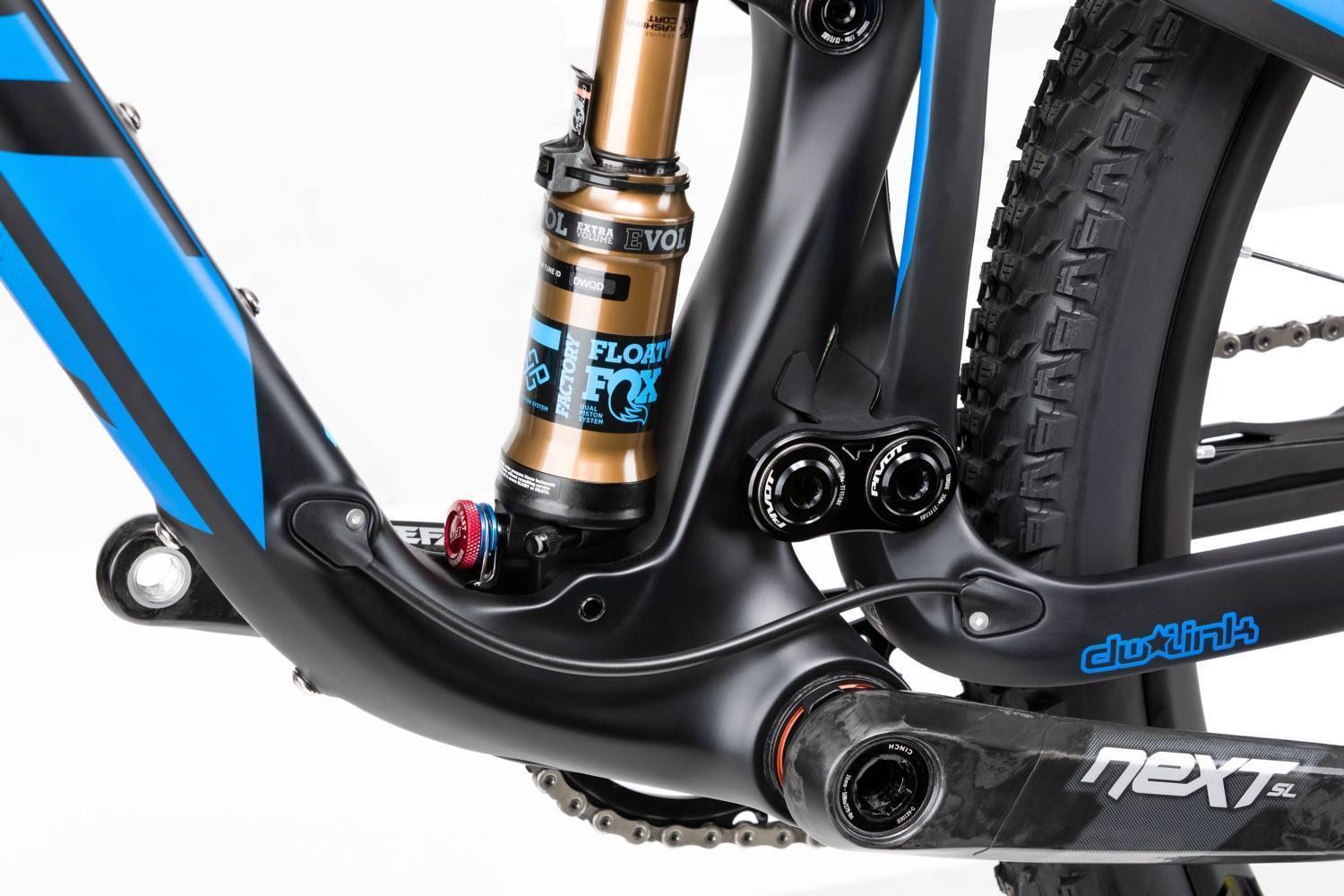
First impressions
For its Launch, Pivot took a few media folks and dealers out to Taupo, New Zealand to take the bike for a spin at the Craters Mountain Bike Park. This network is made up of over 50km of flowy well manicured XC trail. I had the opportunity to ride both the Mach 4 SL with Fox Live Valve suspension and the standard Fox Factory bouncy bits both with 120mm forks.
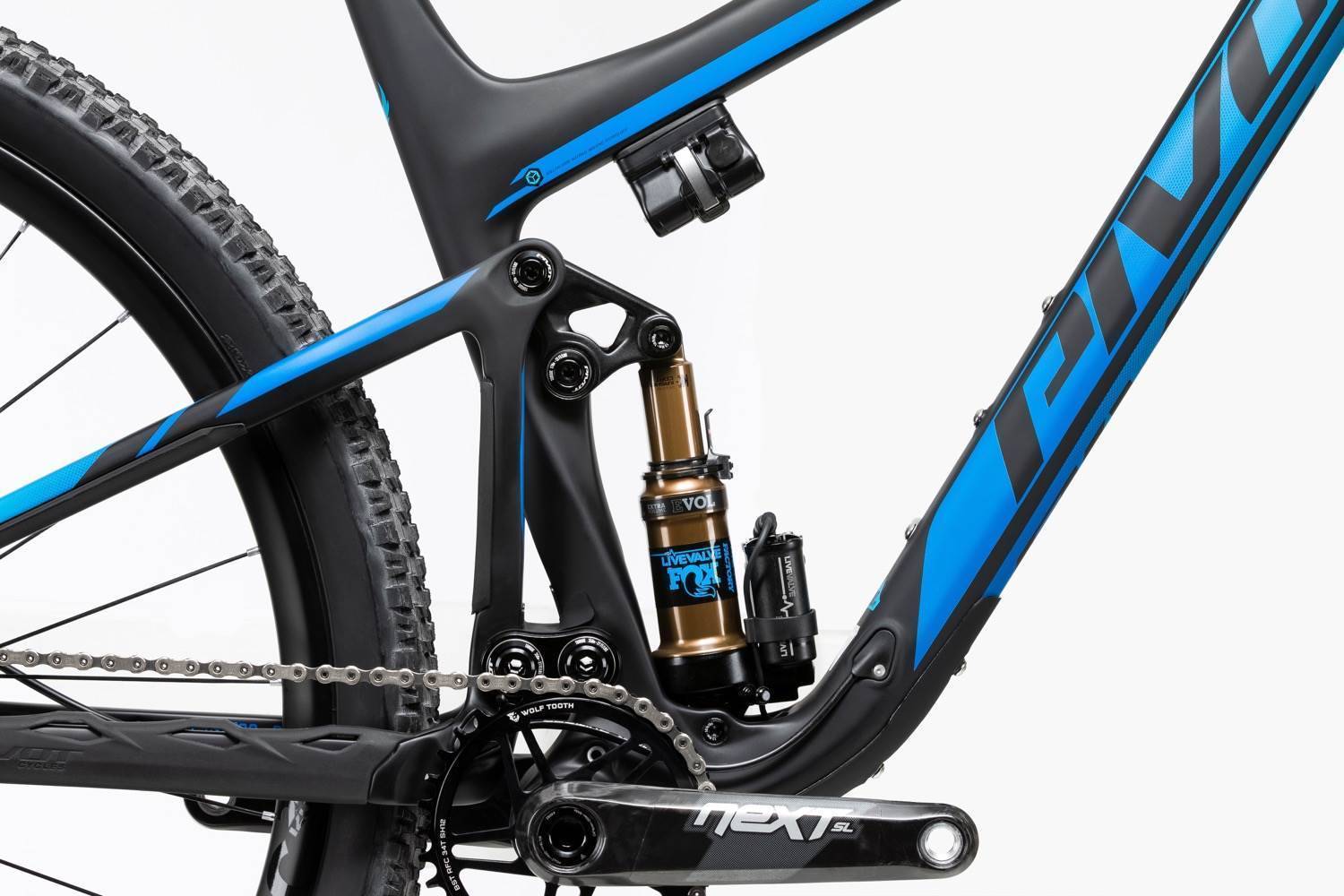
For some of our eagle-eyed readers, you may have noticed a few riders at the Albstadt World Cup on the new Mach 4 SL with Live Valve, and Tristan Ward and Charlotte Culver are currently racing the bike at the Port to Port. The idea behind Live Valve is simple; it takes the thinking out of using your suspension lockout; it's there when you need it and not when you don't.

According to Fox's testing, XC racers were locking out their suspension 60 to 70-times per race, and over the same period on the same course Live Valve was locking out the suspension 720-times. The sensor which is mounted on the underside of the Mach 4 SL's top tube is taking measurements 1000-times per second and can shift the dampening from open to closed in 3-milliseconds—100-times faster than the blink of an eye.

On the trail, it took me quite a while to get used to the system, and I had mixed feelings, however for an XC racer looking to harness every single available watt, there is measurable value. There are five available settings; one being the most plush and five being the stiffest, I settled on two. As you climb, the suspension feels hard; however, it's clear that Live Valve is hard at work as the ride quality is less rattly than a locked out shock and your tyres aren't skittering for traction or pinging around the trail.
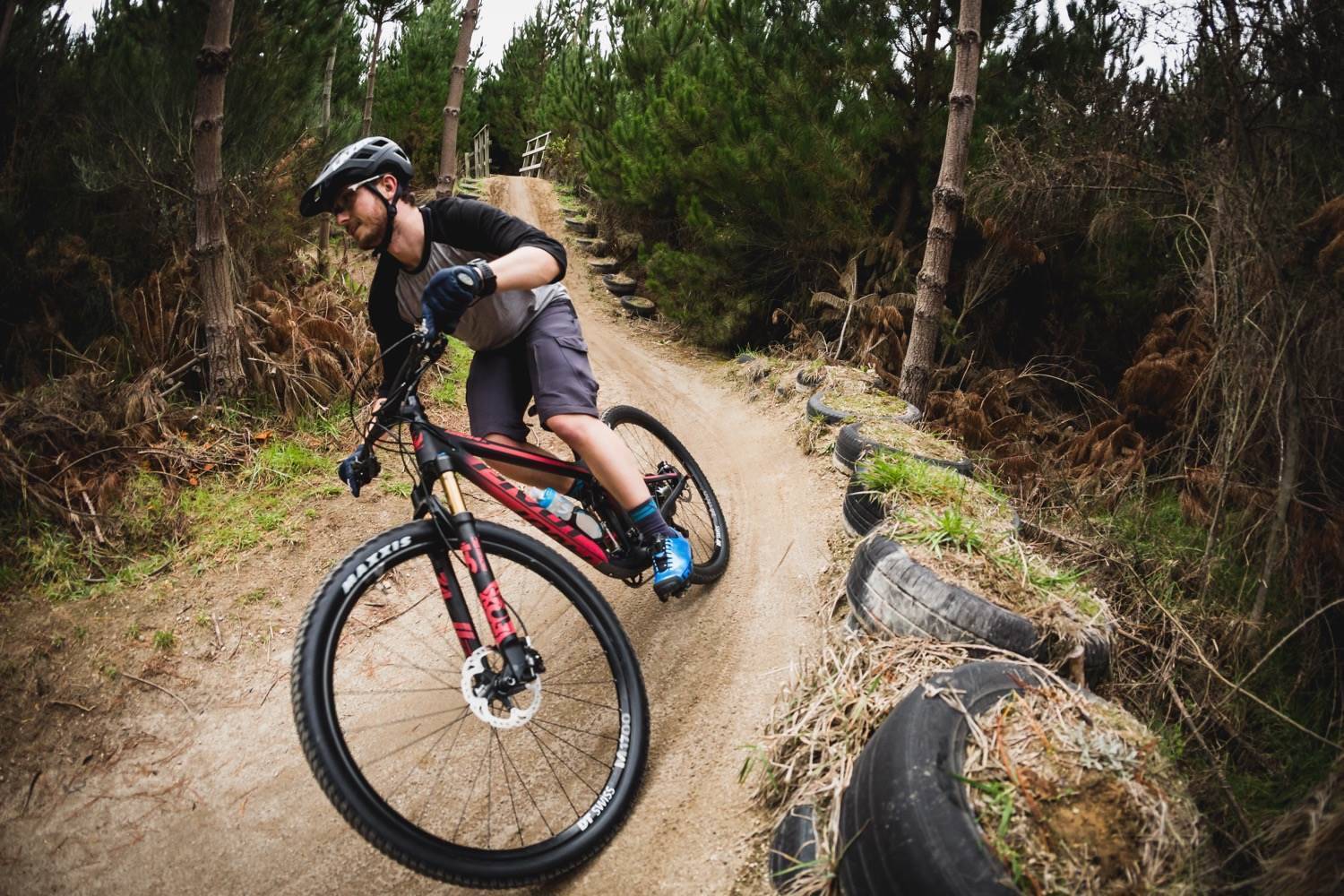
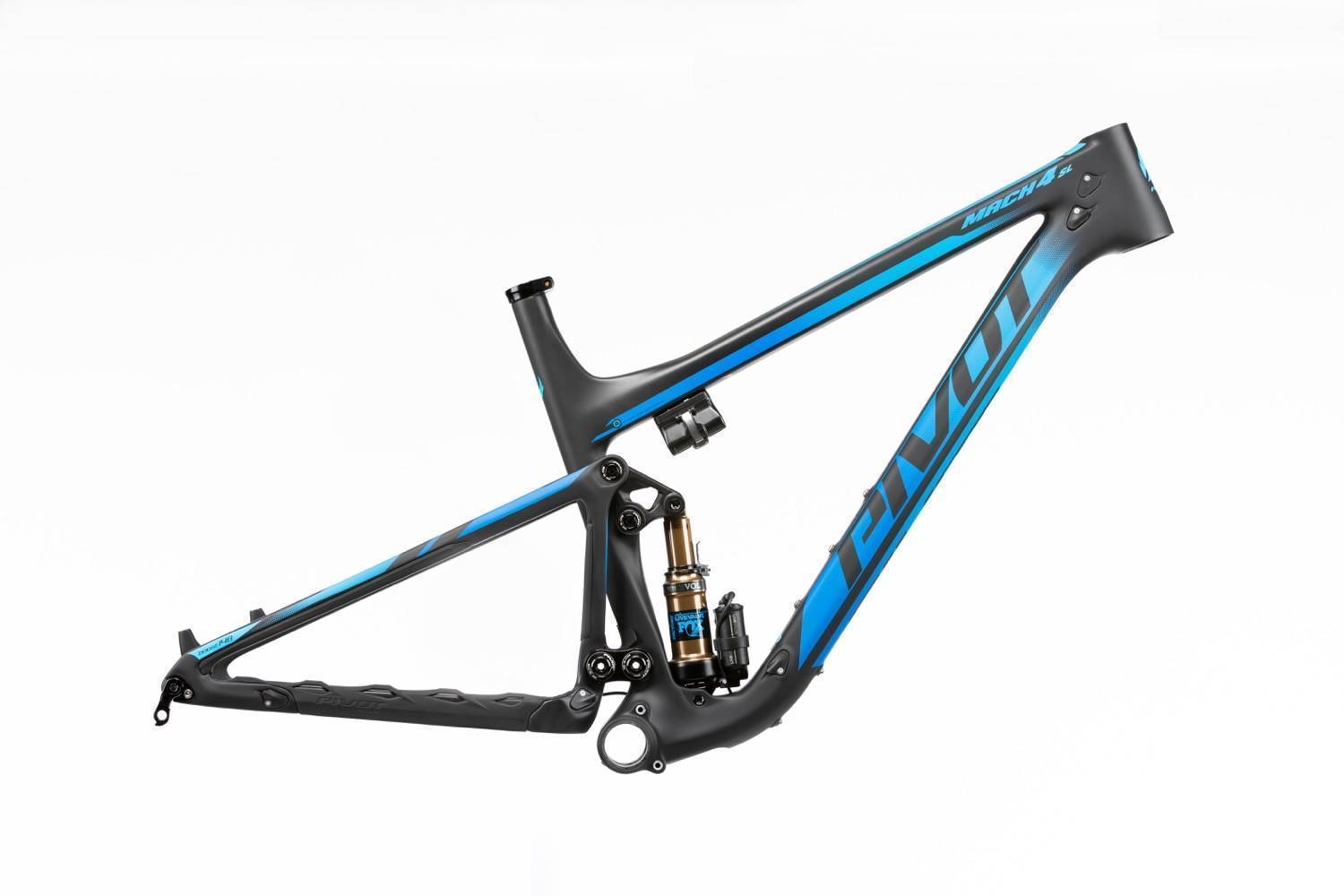
It is worth noting that of the loops we rode at Craters, didn't feature any techy climbing; there were however a few sustained climbs and pinch hairpin steeps where the smart suspension shined, and so did the difference in efficiency. When you jump out of the saddle you almost get the snap you do with a hardtail with no energy lost but, the standard shock is no slouch in this arena either, due in part to the DW-link. There is no doubt that this bike will pedal well in just about any configuration, and even though there was a lockout switch on the bars, I didn't find much use for it.
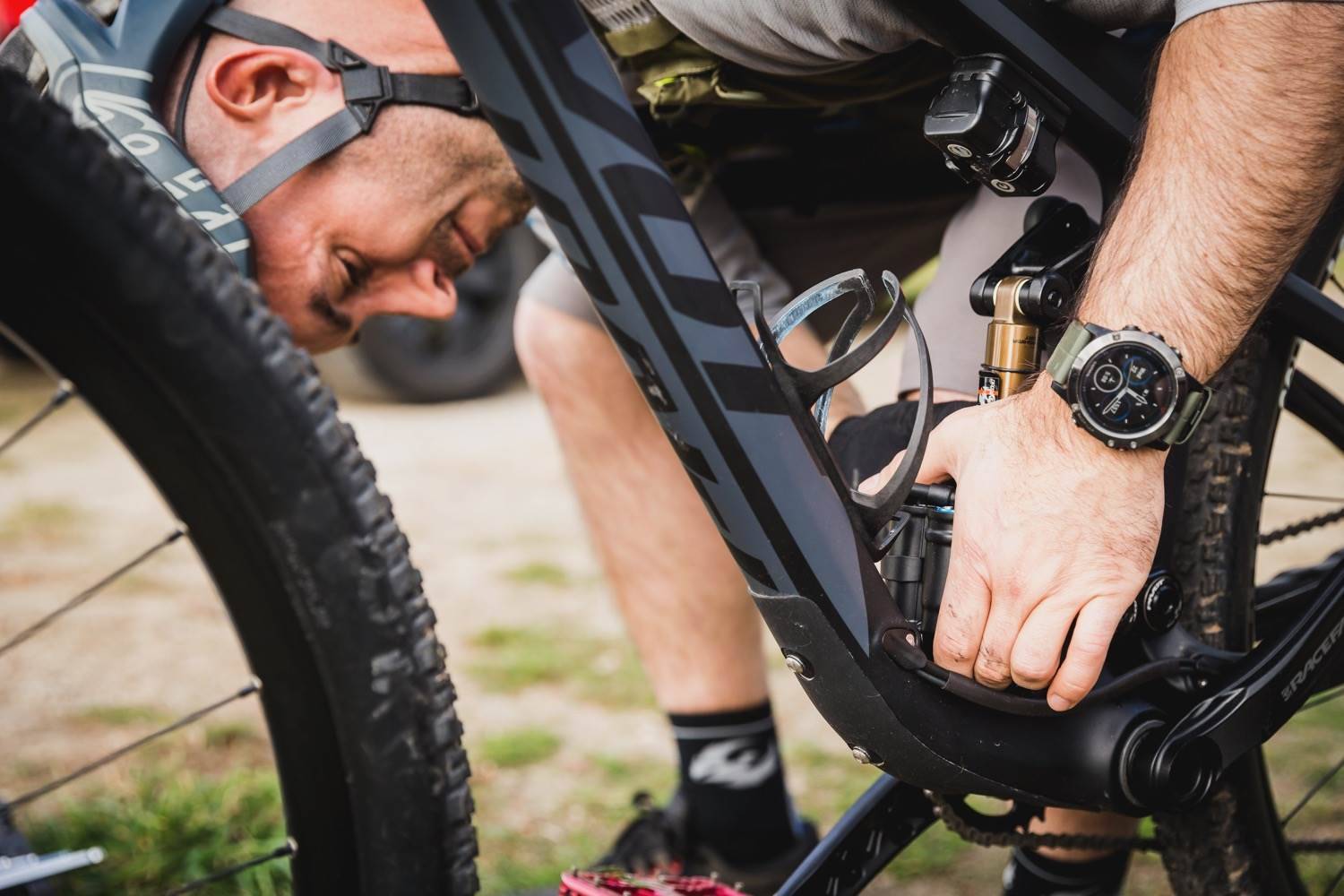
When things pointed down, the Live Valve setup didn't feel quite as plush and smooth as the analog Factory 34 and DPS rear shock; however, suspension setup was also likely a factor. Only having a few hours on the bike, and playing musical bikes mid-ride doesn't lend itself to achieving the perfect setup; letting a bit of air out and a few clicks of rebound could make all the difference—but others at the launch echoed a similar sentiment.
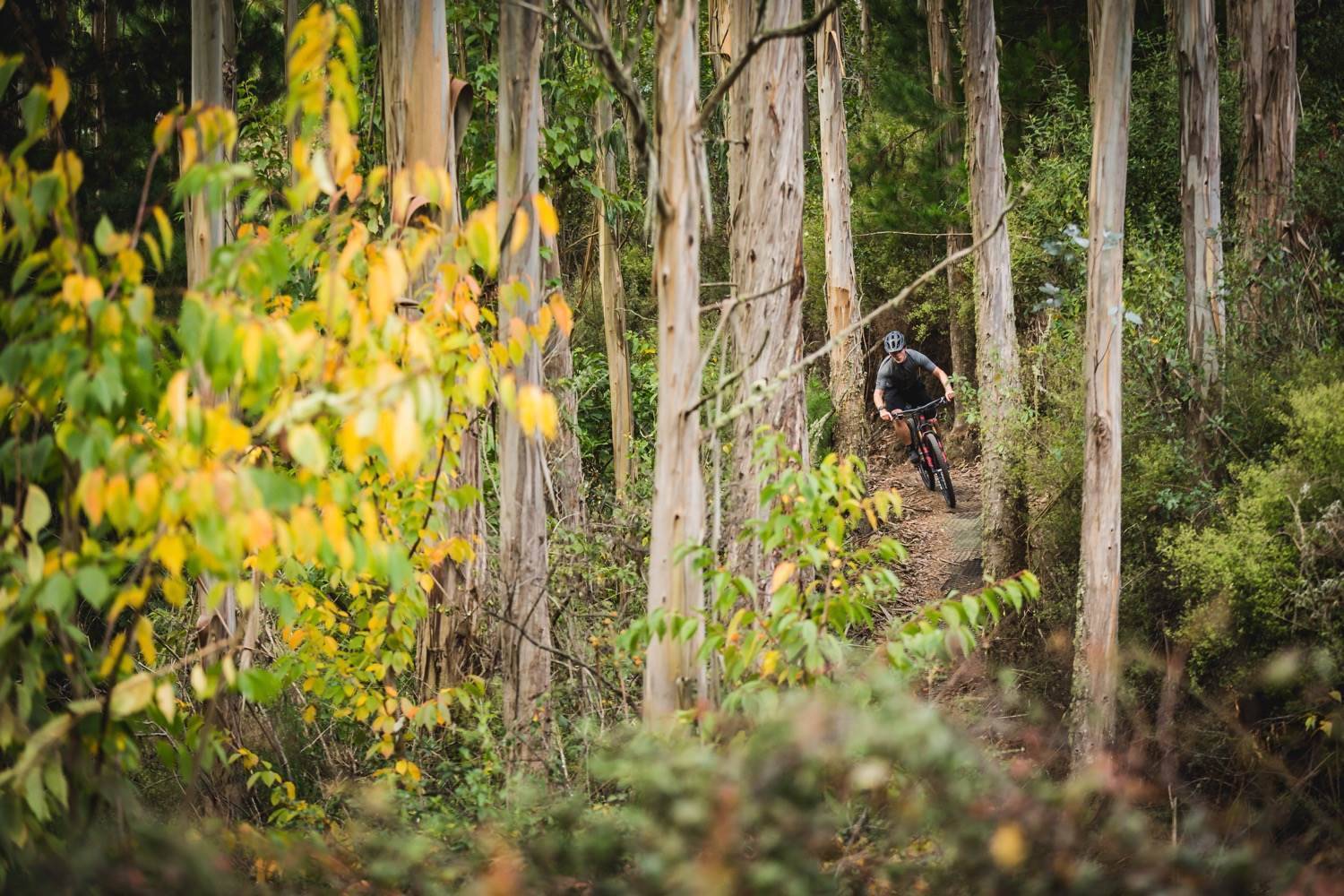
With the geometry getting slacker at the front, in combination with a 44mm offset fork, 75mm stem and 760mm bars the bike is stable on the descents. Even with a 75mm stem which by today's standards isn't overly short, the steering input is lively; it's not a bike you just survive the descents on, it gives you the confidence to push on the downhills, and will have you giggling like a child the whole way down.
Pivot says it has increased the stiffness throughout the frame, and where this bike was noticeably robust was in the lateral axis. With the leverage on offer from the wide bars when you lean the bike over it tracks precisely where you point it with no loss of steering input to deflection in the frame or linkage.

For such a light bike, it's also surprisingly composed in the air. I am a nervous jumper to begin with, following a few too many broken collar bones, but on the Mach 4 SL, I felt more or less at home in the air—or as ''at home'' as I can be.
Overall XC bikes across the board are getting more fun to ride, and the Mach 4 SL is no exception. It's hard to get to know a bike in only a few hours, but the new XC racer from Pivot was extremely capable on the fast and flowy trails we were presented. We didn't get much a chance to take the bike through rocky and rooty singletrack, but I think I can safely say it wouldn't break the Mach 4 SL's stride.

Available now the new Pivot Mach 4 SL comes in Blue, Cherry and Raw Carbon, five sizes, starts at $7,999 for a complete bike with Fox Performance suspension and a Shimano XT drivetrain and goes all the way up to $17,999 should your pockets be deep enough for Live Valve and a SRAM AXS build. Frame kits are also available for more info head over to Jet Black or your local Pivot dealer.
